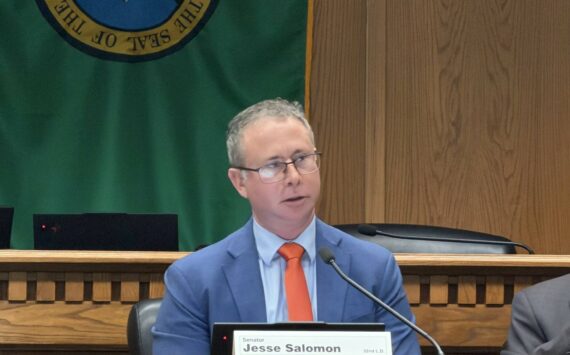“With the World Trade Organization meeting scheduled for Seattle in a little over a month, a new WTO report is arguing that international economic integration and growth reinforce a need for sound environmental policies.The new WTO Secretariat report stated that international cooperation is important in addressing global and transboundary environmental challenges, too broad for one nation to address. The report stated that such cooperation is important, with or without trade between the nations.The WTO Secretariats Trade and Environment Report, released last week, addresses the economic and political economy dimensions of the trade-environment interface. The report argues that there is no basis for generalizations arguing that trade is either good or bad for the environment. It states that it can be both – a shade of grey. To obtain win-win outcomes for both trade and the environment, it takes well-designed policies in both fields, according to the report.Every WTO Member Governments supports open trade because it leads to higher living standards for working families which in turn leads to a cleaner environment, said WTO Director-General, Mike Moore. This report underscores that trade and the environment need not be contradictory but can indeed be complementary.The report attempts to answer questions regarding economic integration as a threat to the environment, trade undermining governmental pollution control and resource degradation, and how economic growth driven by trade can move countries toward a more sustainable use of the worlds environmental resources.Some main findings of the report include:- Most environmental problems result from polluting production processes, certain forms of consumption, and disposal of waste products. Trade is rarely the root cause of environmental degradation, with the exception of pollution caused by transportation of goods;- Environmental degradation occurs because producers and consumers are not always required to pay for the costs of their actions;- Degradation to the environment can be accentuated by policy failures, including subsidies to polluting and resource-degrading activities, such as agriculture, fishing and energy;- Trade would unambiguously raise the welfare of people if proper environmental policies were in place;- Trade barriers overall make for poor environmental policy;- Not all environmental standards should necessarily be harmonized across nations;- The competitive effects of environmental regulations are minor for most industries;- A good environmental record and profile can be more of an asset for a firm than a liability in the international marketplace, despite somewhat higher production costs;- There is little evidence that polluting industries may tend to migrate from developed to developing countries to reduce the costs of environmental compliance;- Environmental measures are sometime defeated because of concerns about competitiveness, suggesting a need for improved international cooperation on environmental issues;- Economic growth driven by trade may be a part of a solution to environmental degradation, but it is not sufficient by itself to improve environmental quality. Higher incomes need to translate into higher environmental standards;- The cooperative model of the WTO, based on legal rights and obligations, could potentially serve as a model for a new global architecture of environmental cooperation.The report states that even within its current mandate, the WTO could contribute a few important measures for the environment. It states the organization could address remaining trade barriers on environmental goods and services to reduce the cost of investing in clean production technologies and environmental management systems.Another possibility, the report stated, would be to seek reductions in government subsidies that harm the environment, including energy, agriculture, and fishing subsidies.The report concludes that with respect to the environment, trade is not the issue, nor is economic growth. It states that the issue is how to reinvent environmental policies in an ever more integrated world economy to ensure the maintenance of ecological limits.The way forward, the report states, would be to strengthen the mechanisms and institutions for multilateral environmental cooperation, along the lines of how world trade was strengthened through the process which has led to the creation of the WTO.”
More Stories From This Author
Here’s how child care oversight works in WA
How does oversight of child care spending actually work in Washington state?
By Keelin Everly-Lang keelin.everly-lang@soundpublishing.com • February 5, 2026 5:35 am
Bill seeks to update state’s involuntary treatment law
The Senate Law and Justice Committee held a hearing Feb. 2 for legislation that would make it easier to commit…
By Cassie Diamond, WNPA Foundation • February 4, 2026 5:30 am
Rural homes in WA could be safer under proposed bill
Entire neighborhoods could get home insulation, air pollutants and mold protection, age-in-place accessibility measures like ramps and handrails, and more…
By Annika Hauer, WNPA Foundation • February 3, 2026 5:30 am




